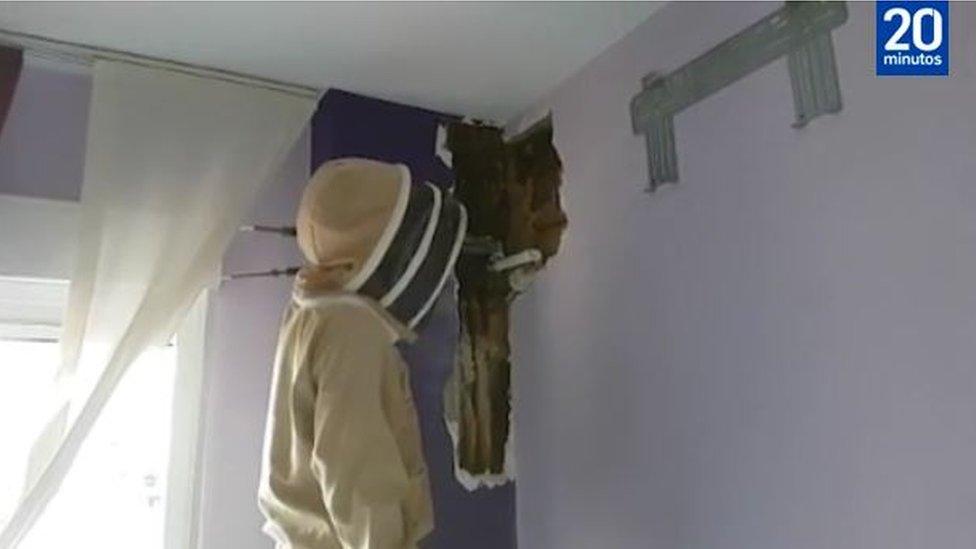Huge bee colony removed from Spain bedroom
- Published

Beekeeper Sergio Guerrero was stunned at the size of the nest
A couple in the Spanish town of Pinos Puente has discovered the reason for the constant buzzing noise in their bedroom - a massive bee nest behind the wall.
The couple had spent two years not knowing where the droning sound that kept them awake at night was coming from, until one day they found the culprit, the news site reports.
They called in professionals to confirm their suspicions and escort the unwanted visitors from the house.
Bee relocation expert Sergio Guerrero was at hand and ready to carry out the delicate operation.
He told the newspaper that the swarm was so big it took him hours to extract it from the wall cavity and release the bees into the wild.
Mr Guerrero makes sure not a single bee is left behind by "'vacuuming up' the remaining insects
Mr Guerrero used a special suction system to ensure not a single bee was left behind. He estimated that there were 80,000 bees in this nest.
"I can't understand how they've been living with that number of bees for two years. That would have left them with a constant buzz in their ears," explained the beekeeper.
'Busy year'
Relocating bees, he says, means the insects have to be taken to a location at least 800m away from a populated area.
It's been a busy year for Mr Guerrero, who specialises in this type of rescue - he has moved more than half a million bees so far.
You might also be interested in:
Rising temperatures are suspected to have contributed towards longer than usual period of bee swarming - the time when bees reproduce.
And when they look for new locations to start a colony, sometimes they chose the most inappropriate accommodation.
Berlin bees
Earlier this week for example, Berlin police were confronted with an unforeseen emergency - and one they couldn't handle. They pictures of a bee swarm on a bicycle, which created a social media buzz.
Bees turned up en masse in Berlin, in time for World Bee Day
Several users posted their photos of swarms elsewhere in the city, including one hanging off traffic lights.
Others joked that the bees are staging an environmental protest - by choosing a mechanical means of transport to safeguard the future of the species.
Scientific studies have proven that bees have become increasingly endangered due to pollution and deforestation. The UN says one million species face extinction.
Reporting by Krassi Twigg
Next story: 'Dutch Venice' bolsters its bridges
Use #NewsfromElsewhere to stay up-to-date with our reports via .